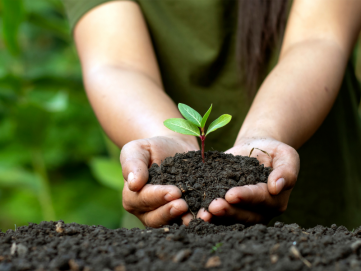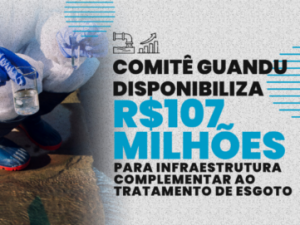Há about twelve years the Committeeê Guandu-RJ, in partnership with the municipalities of participating municipalities and partner institutions, develops the Water and Forest Producers (PAF) program. The initiative combines environmental restoration and conservation with payment for environmental services (PES). The PAF has already resulted in the restoration and conservation of more than five thousand hectares of Atlantic Forest and already; paid back almost two and a half million reais in PSA, the local producers. Only last year, more than four hundred thousand reais were paid to participants. Now, the board has approved a new structure for the program that intends to further expand environmental and economic gains.
The goal is; promote forest conservation and recovery in the basin areas, contributing to the quality of the water that supplies around nine million people in the Metropolitan Region of Rio de Janeiro. In addition to benefiting the environment, the project manages to achieve social benefits, either through financial rewards for the conservation without harm to the owner, or through creation; It offers a new look at nature and production. Currently, the PAF é developed in the municipalities of Rio Claro, Mendes, Engenheiro Paulo de Frontin and Vassouras.
This month, a new phase begins, the result of a structured design by the Green Infrastructure Working Group of the Committeeê Guandu-RJ, which is; formed by experts and members of various public organizations and civil society. “The improvement of the Water and Forest Producers Program is” the consolidation, in the Committeeê Guandu, of the recognition of green infrastructure as part of the solution to reduce the impact of water scarcity. It also ratifies the importance of water resource management with nature-based solutions for biodiversity”, explained Agricultural Engineer Hendrik Mansur (The Natural Conservancy), Working Group Coordinator of the Green Infrastructure Committeeê Guandu.
With the new design, in addition to enhancing conservation and promoting forest restoration, the PAF will; encourage land use change by converting areas of low productivity into systems with greater eco-hydrological and economic functionality.
“The use of new techniques for agricultural production contributes to greater socioeconomic and environmental resilience of small rural properties, essential for the effects of change to occur. climates can be minimized”, he completed.
The program will work; in biannual cycles, that is, every two years, public selections will be opened for contracting environmental service providers, divided into two modalities: annual PSA, which includes conservation modalities Restoration, passive restoration and active restoration and; the PSA Financial Support, which will be granted to the rural owner for the acquisition of the necessary inputs à implementation of productive conversion, which includes agroforestry, silvopastoral, managed forest and conservation practices. The resolution was approved during a Plenary meeting held on May 27th and is already there; it is in force.
Now, the initiative that already has; was the subject of a thesis in the United States and received a visit from European specialists, hoping to contribute even more to the environmental quality of the basin. “The PAF is; part of the Committee’s strategy; Guandu for the gain of scale in the environmental restoration of the hydrographic region, as well as the preparation of Municipal Plans for the Atlantic Forest and the Forest Master Plan, the creation of the bank of priority areas for forest restoration and rural sanitation”, concluded Hendrik Mansur.
COMMUNICATIONÇÇTHE COMMITTEEÊ GUANDU
Telephone: (21) 3787 3729
E mail: comunicacao.guandu@agevap.org.br




